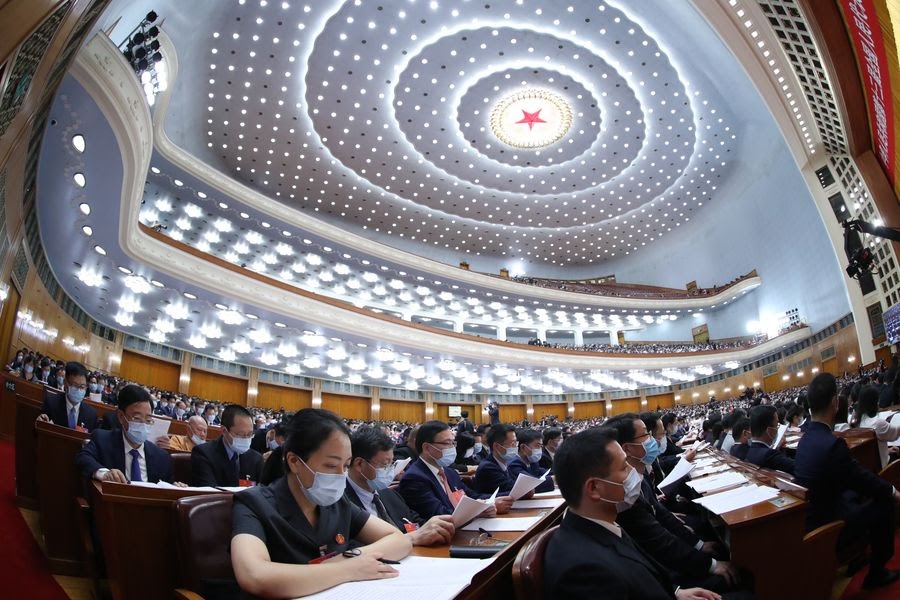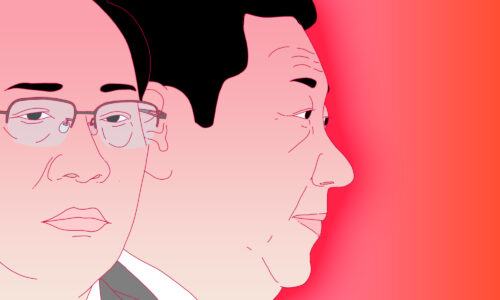The next Trump travel ban: Chinese Communist Party members?
Under a draft presidential order, the Trump administration could bar all CCP members and their families — as many as 270 million Chinese people — from traveling to the U.S. The policy would be difficult to implement, and its benefits are unclear.

Banning large groups of foreigners from coming to the United States for arbitrary reasons is a signature Trump move. From closing American borders to travelers from multiple Muslim-majority countries since 2017, to barring all immigration from Africa’s most populous country, Nigeria, in January of this year, Trump has no qualms with severing people-to-people relationships.
A new ban under consideration, according to the New York Times, would do just that with a fifth of China’s population:
The Trump administration is considering a sweeping ban on travel to the United States by members of the Chinese Communist Party and their families…
The presidential proclamation, still in draft form, could also authorize the United States government to revoke the visas of party members and their families who are already in the country, leading to their expulsion. Some proposed language is also aimed at limiting travel to the United States by members of the People’s Liberation Army and executives at state-owned enterprises, though many of them are likely to also be party members…
Counting party members as well as their families, the ban could technically bar travel to the United States for as many as 270 million people, according to one internal administration estimate.
The presidential order is still in draft form, and “the issue had not yet been brought to President Donald Trump,” according to Reuters. The Chinese foreign ministry has already commented on the plans, calling them “very pathetic” and saying the U.S. is “ridiculously acting in contrary to the wishes of the Chinese people.” State-run newspaper the Global Times went further:
The CPC is not a political party that has emerged under a Western political ecology. It is substantially different to Western-style parties in scale, goals, operating mechanism and the role it plays in society. The CPC is not a typical “party” in the English vocabulary. No English word can really describe it.
“Communist Party” describes it just fine, in our view, though it’s important to remember that most of its members do not hold official positions or are even directly involved in politics. The NYT writes:
While its leaders maintain control of domestic and foreign policy, those on lower rungs do everything from supervising schools to managing neighborhood-level governance. In recent decades, many citizens joined to get a leg up in a wide range of sectors: business, academia and even the arts. Many Party members do not conform to official ideology; some are Christians who attend underground churches, for example.
“Several flaws with the plan are immediately obvious,” writes Jude Blanchette of the Center for Strategic and International Studies:
- There is no public membership list, so there is no way of knowing for certain who is a CCP member and who is not. How could an individual prove they are not a member of the CCP?
- There are nearly 92 million CCP members, yet less than 8 million serve in party or government organs, meaning the vast majority of members have no meaningful connection to policy decisions. The single biggest occupational category of party membership is “farmers, fishermen, and cattle workers.”
- More than 12 million party members are below the age of 30, which means the United States would be cutting off ties and any potential influence over the future leaders of the country.
“The fact that such a sweeping ban is being discussed shows the lengths to which Trump’s aides may be prepared to go as they make the tough-on-China theme a thrust of his campaign for re-election in November,” Reuters writes.
The move could further push economic decoupling of the U.S. and China, in part because CCP members “include many members of China’s corporate elite, who would be unable to travel to America to do business,” CNN writes. “Alibaba founder Jack Ma [Mǎ Yún 马云], Dalian Wanda Group founder Wáng Jiànlín 王健林 and BYD founder Wáng Chuánfú 王传福 are all members of the Communist Party.”
To learn more about who CCP members are, and the many reasons why they might join, see:
- Members only: A look at recruitment trends in the CCP / Macro Polo
-
U.S. wants to bar members of China’s Communist Party. Who are they? / NYT (porous paywall)
“…voices of dissent have also come from the Party. Dr. Li Wenliang, who sounded the alarm online about a mysterious virus that emerged in China and was interrogated by the police for his trouble before dying of Covid-19, was a party member. So, too, is the Uighur economist Ilham Tohti, a winner of the Sakharov Prize…”






